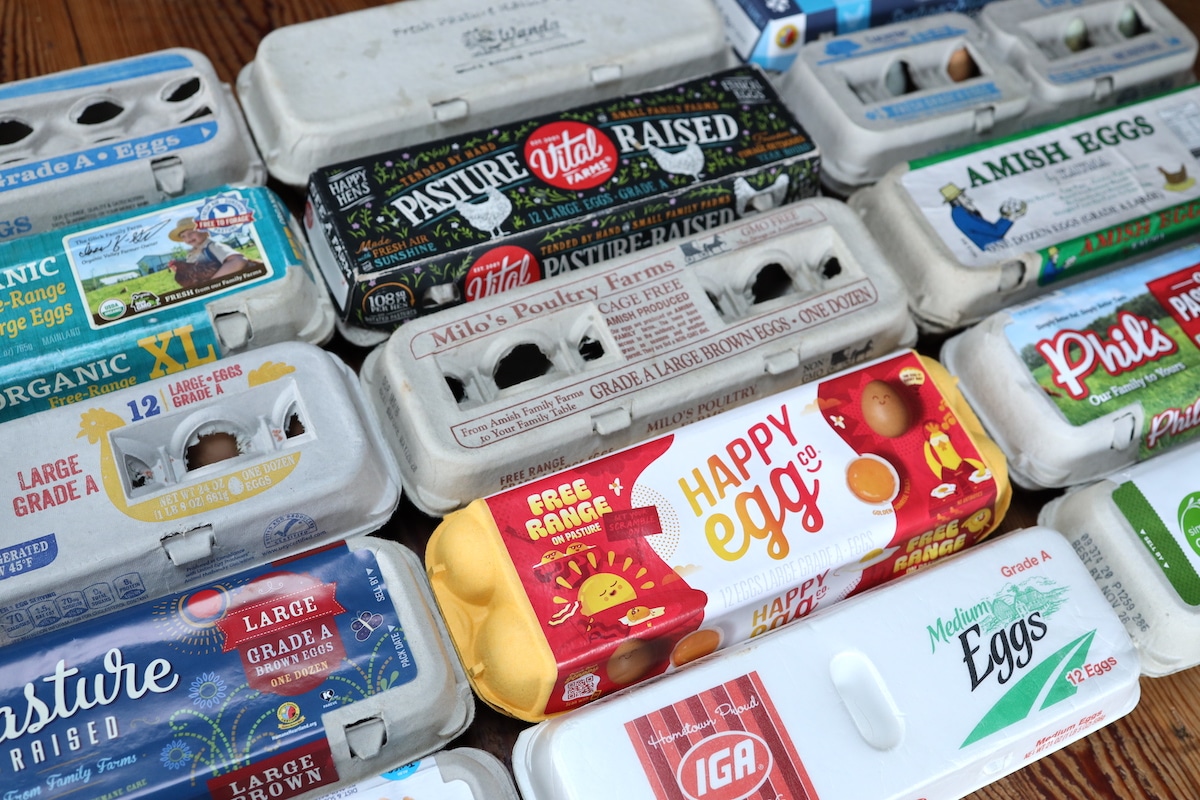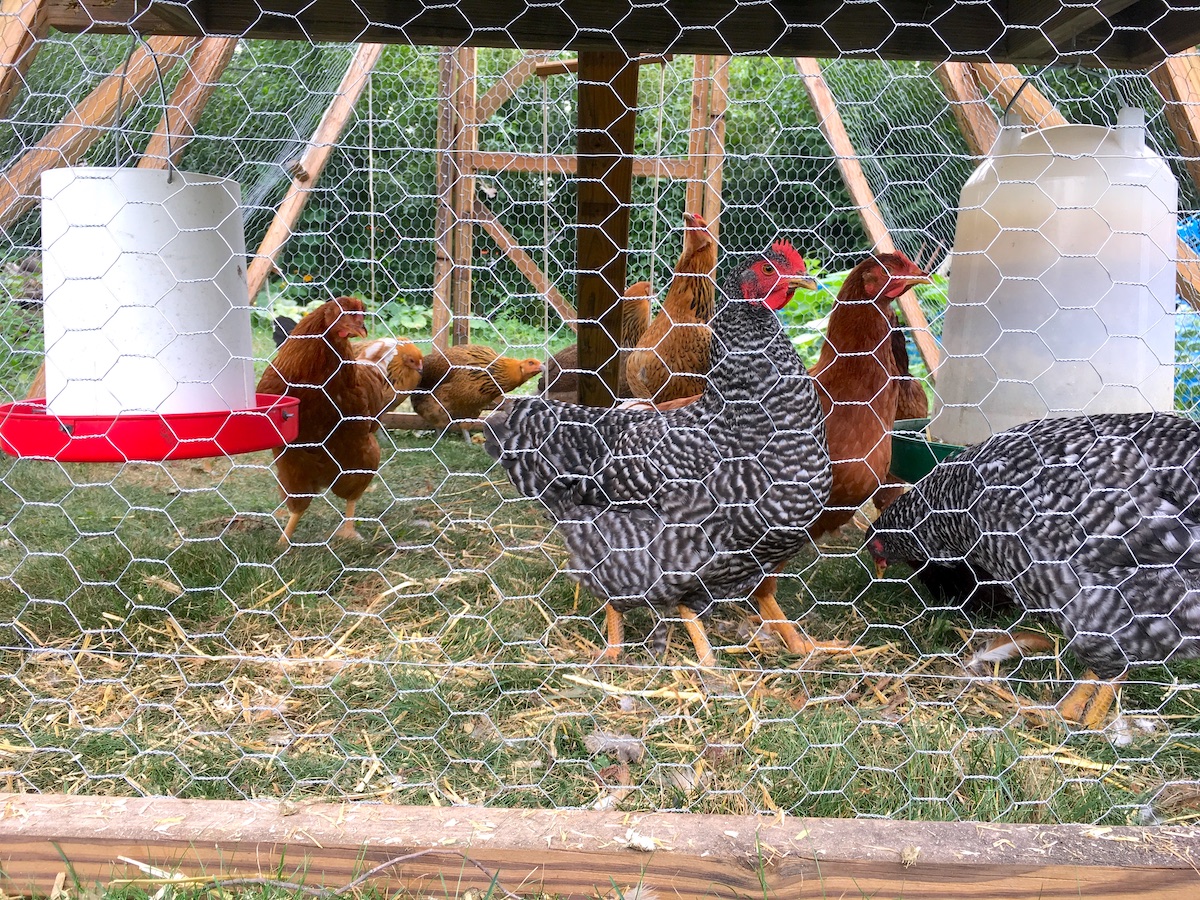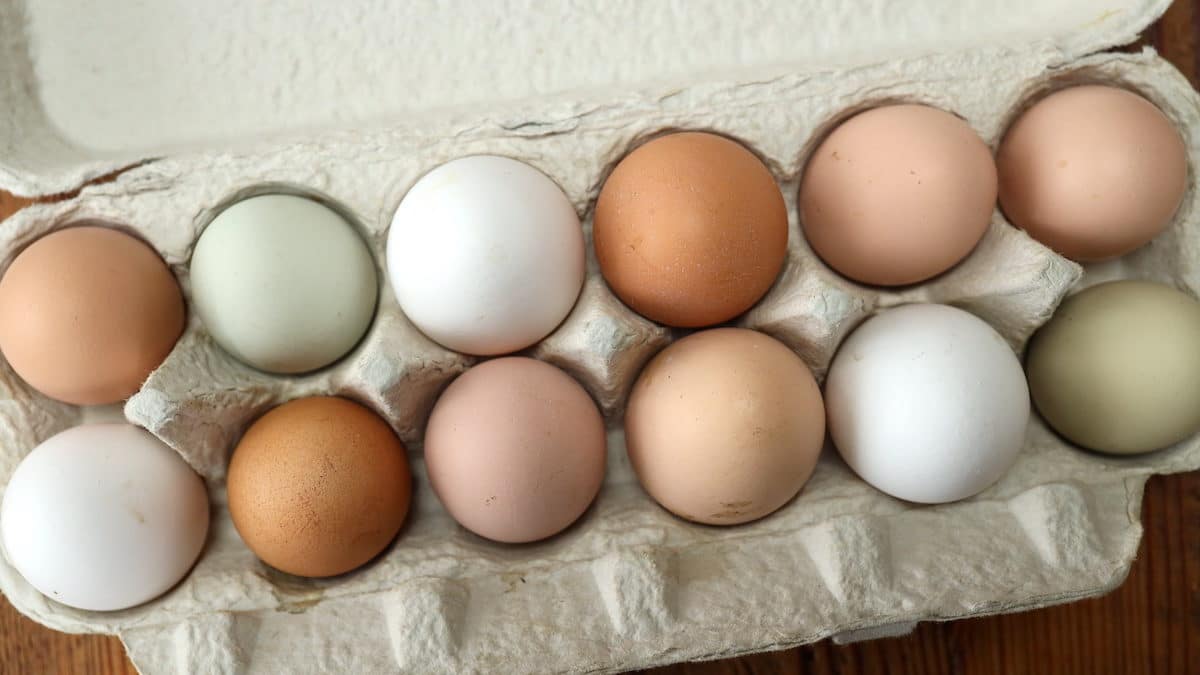Are you sitting on a gold mine of eggs from your backyard chickens? Wondering what those farm-fresh beauties are worth in today’s market? You’re not alone! As someone who’s been in the chicken game for years I can tell you that egg pricing can be tricky business.
The current average price for a dozen Grade A large eggs in the US is around $4.95 as of early 2025 but there’s so much more to the story. Depending on your location production methods, and egg quality, you could be charging anywhere from $3 to $10 per dozen!
Let’s crack open this topic and explore exactly what your chicken eggs are worth in today’s market
Current Egg Pricing Trends (September 2025)
The egg market has been on quite a rollercoaster lately. According to recent data, here’s what consumers are paying:
- Regular store-bought eggs: $4.55-$5.12 per dozen
- Farm-fresh eggs: $3-$8 per dozen
- Specialty eggs (organic, pasture-raised): $6-$10 per dozen
What’s driving these prices? Several factors have created the perfect storm:
- Bird flu outbreaks: The H5N1 strain has affected nearly 131 million commercial egg-laying hens since February 2022
- State regulations: Seven states now ban conventional eggs for animal welfare reasons
- Inflation: Overall food prices have risen 2.9% in the past year
- Consumer demand: Despite high prices, demand remains strong
Factors That Impact Your Egg Pricing
Before slapping a price tag on your cartons, consider these important factors:
1. Location Matters
Urban and suburban areas typically support higher prices due to:
- Higher cost of living
- Fewer local competitors
- Greater interest in “local food”
- Customers willing to pay premium prices
Rural areas might have lower prices but also less competition. I’ve found that eggs in my semi-rural area sell for about $1-2 less per dozen than in the nearest city.
2. Production Methods
How you raise your chickens significantly impacts pricing:
| Production Method | Price Range | Key Features |
|---|---|---|
| Conventional | $3-5/dozen | Standard feed, confined housing |
| Free-Range | $5-8/dozen | Some outdoor access |
| Organic | $6-10/dozen | Organic feed, no antibiotics |
| Pasture-Raised | $7-12/dozen | Regular access to pasture |
3. Egg Quality & Characteristics
Customers will pay more for:
- Size: Jumbo eggs command $0.50-1.00 more per dozen
- Color: Blue, green, or chocolate eggs from heritage breeds
- Freshness: Same-day or next-day eggs
- Yolk quality: Deep orange yolks from pasture-raised hens
- Cleanliness: Clean, unblemished shells
4. Your Costs
You gotta make a profit! Calculate your expenses:
- Feed (typically $0.15 per egg)
- Housing ($5+ per bird)
- Equipment ($5+ per bird)
- Chick purchase ($3-5 per chick)
- Healthcare ($5-10 annually per bird)
- Packaging ($0.20-0.30 per carton)
- Labor (your time is valuable!)
Real-World Pricing Examples
Based on my research and experiences, here’s what eggs are selling for in different scenarios:
Farmers Markets
Farmers markets typically command the highest prices:
- Standard eggs: $5-6/dozen
- Organic eggs: $6-8/dozen
- Specialty eggs (colored, jumbo): $7-10/dozen
Roadside Stands
Direct farm sales offer good value for both farmer and customer:
- Standard eggs: $3-5/dozen
- Organic/specialty: $5-7/dozen
Grocery Stores
Store prices have reached new highs:
- Conventional: $4.55-5.12/dozen
- Cage-free: $5-6/dozen
- Organic: $6-8/dozen
Online/Facebook Marketplace
Social media sales typically match farmers market prices:
- Standard: $4-6/dozen
- Specialty: $6-8/dozen
Setting Your Prices
Now, let’s talk strategy for pricing your own eggs:
1. Cost-Plus Pricing
Calculate your costs per dozen, then add your desired profit margin.
Example: If your costs are $3.50 per dozen, adding a 40% margin gives you a price of $4.90 per dozen.
2. Value-Based Pricing
This approach focuses on what customers perceive your eggs are worth based on quality, freshness, and production methods.
Example: If local store eggs are $5 but yours are fresher and from pastured hens, you might charge $7-8.
3. Competitive Pricing
Research what others in your area charge and price accordingly.
Example: If local farm stands charge $5, you might start at $4.50 to attract new customers, then raise prices as you build a customer base.
Can You Actually Make Money Selling Eggs?
Let’s be real – selling eggs probably won’t make you rich. But it can:
- Cover your feed costs
- Generate side income
- Support your chicken hobby
The math: If you have 20 productive hens laying 5 eggs per week each, that’s about 87 dozen eggs per month. At $5 per dozen, that’s $435 monthly gross income. After expenses (roughly $200-250), you might net $185-235 per month.
Not bad for a side hustle!
Pricing Strategies That Work
After talking with successful egg sellers, here are some proven strategies:
Size-Based Pricing
Offer different prices based on size:
- Jumbo: $6/dozen
- Extra Large: $5.75/dozen
- Large: $5.50/dozen
- Medium: $5.25/dozen
- Small: $5/dozen
This works especially well at farmers markets where customers can choose.
Bundle Pricing
Create value bundles:
- 1 dozen: $5
- 3 dozen: $14 ($4.67/dozen)
- 5 dozen: $22.50 ($4.50/dozen)
This encourages larger purchases and steady customers.
Subscription Model
Offer weekly/monthly subscriptions:
- Weekly dozen: $20/month ($5/dozen)
- Bi-weekly dozen: $10/month ($5/dozen)
- Weekly two dozen: $38/month ($4.75/dozen)
This provides regular income and helps plan production.
Setting Up Your Egg Business
If you’re serious about selling eggs, consider these tips:
Legal Requirements
Most states have regulations for selling eggs:
- Check local laws regarding egg sales
- Some states require licensing for sales beyond your property
- Clean eggs are typically required (dry cleaning with sandpaper is recommended)
Marketing Your Eggs
Stand out from competitors:
- Create attractive packaging
- Use social media to showcase your happy chickens
- Highlight what makes your eggs special (feed, breeds, farming practices)
- Consider a catchy farm name and logo
Sales Venues
Each has pros and cons:
- Roadside stand: Low effort but depends on traffic
- Farmers market: Higher prices but time-intensive
- Facebook/Craigslist: Free advertising but meetup hassles
- Delivery service: Premium prices but time/gas costs
- Wholesale: Reliable volume but lower prices
FAQs About Egg Pricing
Q: Why are eggs so expensive right now?
A: Bird flu outbreaks have severely impacted commercial flocks, with nearly 131 million laying hens affected since 2022. This reduced supply, combined with steady demand and inflation, has driven prices up.
Q: How much can I make selling chicken eggs?
A: One chicken laying 300 eggs annually could generate about $100 in gross profit when sold at $4/dozen. A flock of 20 productive hens could generate $2,000+ annually before expenses.
Q: Do I need a license to sell eggs?
A: It depends on your location and sales method. Generally, if you’re selling directly from your property, fewer regulations apply. Sales at farmers markets or to stores usually require permits.
Q: Should I charge different prices for different egg colors?
A: You can! Colored eggs (blue, green, chocolate) from heritage breeds often sell for $1-2 more per dozen due to their novelty and visual appeal.
My Final Thoughts
After researching current egg prices and talking with backyard chicken keepers, I believe most small producers should price their eggs between $4-7 per dozen, depending on their production methods, location, and costs.
Remember that your time and effort are valuable! Don’t underprice your eggs just to make sales. Quality farm-fresh eggs are worth every penny, and customers who appreciate the difference will gladly pay fair prices.
Have you started selling your extra eggs? What prices have worked in your area? I’d love to hear your experiences in the comments below!
Happy egg selling!

What DON’T We Spend Money On
Everyone has different opinions on how to raise chickens and what to spend money on. So, from our viewpoint, here are things we avoid purchasing.
Unless you are really planning on going after an egg laying business and dead set on having your own unique packaging/branding, buying egg cartons just isn’t a necessity.
Any time we are getting low, we just put it out there to family and friends, and someone is always willing to collect up a massive stash of egg cartons to bring you.
Buying eggs in mismatched cartons is just part of the charm of buying farm fresh eggs!

We have never had a vet look at our chickens. Yes, we’ve lost some chickens from sickness along the way. It’s hard and tragic every time.
But we’ve never been able to justify the high cost of bringing them to a vet. And from what we’ve heard, there is little a vet can do for a chicken in many cases.
This is why we prefer to have some home remedy options available to be able act quickly, and inexpensively when issues do pop up. And, just like with people, the more you’re able to give your chickens the best diet possible and raise them in clean and healthy conditions, the more long-term health issues you’ll be able to avoid.
When we lived in the suburbs, we almost never purchased bedding. This is because we used mulch for bedding and mulch can often come free. Most communities have a free mulch pickup spot available if you do some searching.
I found mulch to be a fine bedding substitute and loved that I never had to pay for it. I would still have a bag of wood shavings to put in the laying boxes, but 1 bag would last a long while.

Yes, you’ll probably need a heat lamp for a chick brooder. The other time you might be inclined to plug in the heat lamp for your girls is during the winter. Don’t! It’s not necessary and it can be dangerous!
Plus, the other cost of heat lamps that often goes unnoticed is the constant suck of power that will skyrocket your electrical bill! We notice the jump up every spring for the month or so when chicks are in the brooder and 1 or 2 heat lamps are running.
Find other ways to cut down drafts or insulate the coop and avoid paying the huge utility bills for those heat lamps all winter long.
How Many Eggs Will I Get From Backyard Chickens?
You can’t fully analyze the cost of chickens without understanding what you get from them in return—eggs.
Egg production fluctuates. There are seasons where egg production is high and stable. And there are seasons where egg production bottoms out and is unpredictable.
A chickens egg production can be impacted by: their age, if they are molting, length of daylight, weather extremes, breed of chicken, feed quality and quantity, stress levels, predator pressure, and injury or illness.
The most productive breeds of chickens will typically lay around 250 eggs per year—some more, some less. Or, to phrase it another way, they would lay eggs two days in a row, then take the 3rd day off.

The issue is that chickens are usually only in peak laying form during their first year or two of life. Beyond this, their egg laying will decline each year. Keeping your flock in peak production requires a significant and intentional effort to raise up new replacement layers and cull off those who’s production has dropped.
Plus, when raising from baby chicks, egg laying won’t even begin until they’re 18-22 weeks old.
While we’ve enjoyed seasons of higher production, our current flock of 50 chickens have only been giving us 12 eggs on average for the last month. At $200 per month in expenses, that’s a tough one to swallow!
But the breakdown of that flock is around 20 layers and around 30 pullets. The layers are either 1.5 or 2.5 years old and some are molting. And the pullets are all getting close to laying, but not there yet. And it doesn’t help that we lost around 5 of our prime layers to hawks in the last couple months!
Our goal here is to paint a realistic (not bleak!) picture of egg production. Once our 30 pullets start laying, things will turn around quickly. But right now, our family of 6 that eats about a dozen eggs a day is barely getting what we need!
